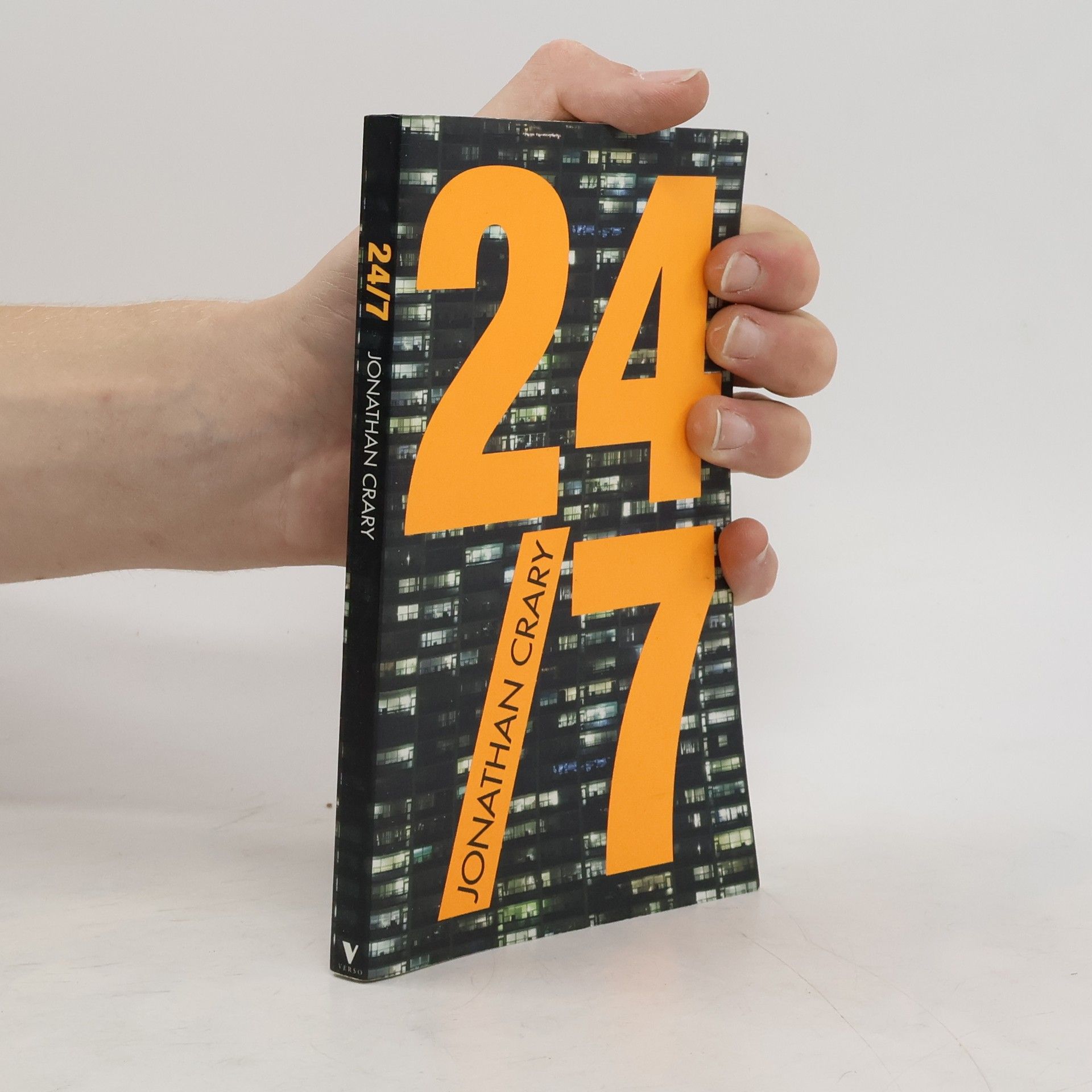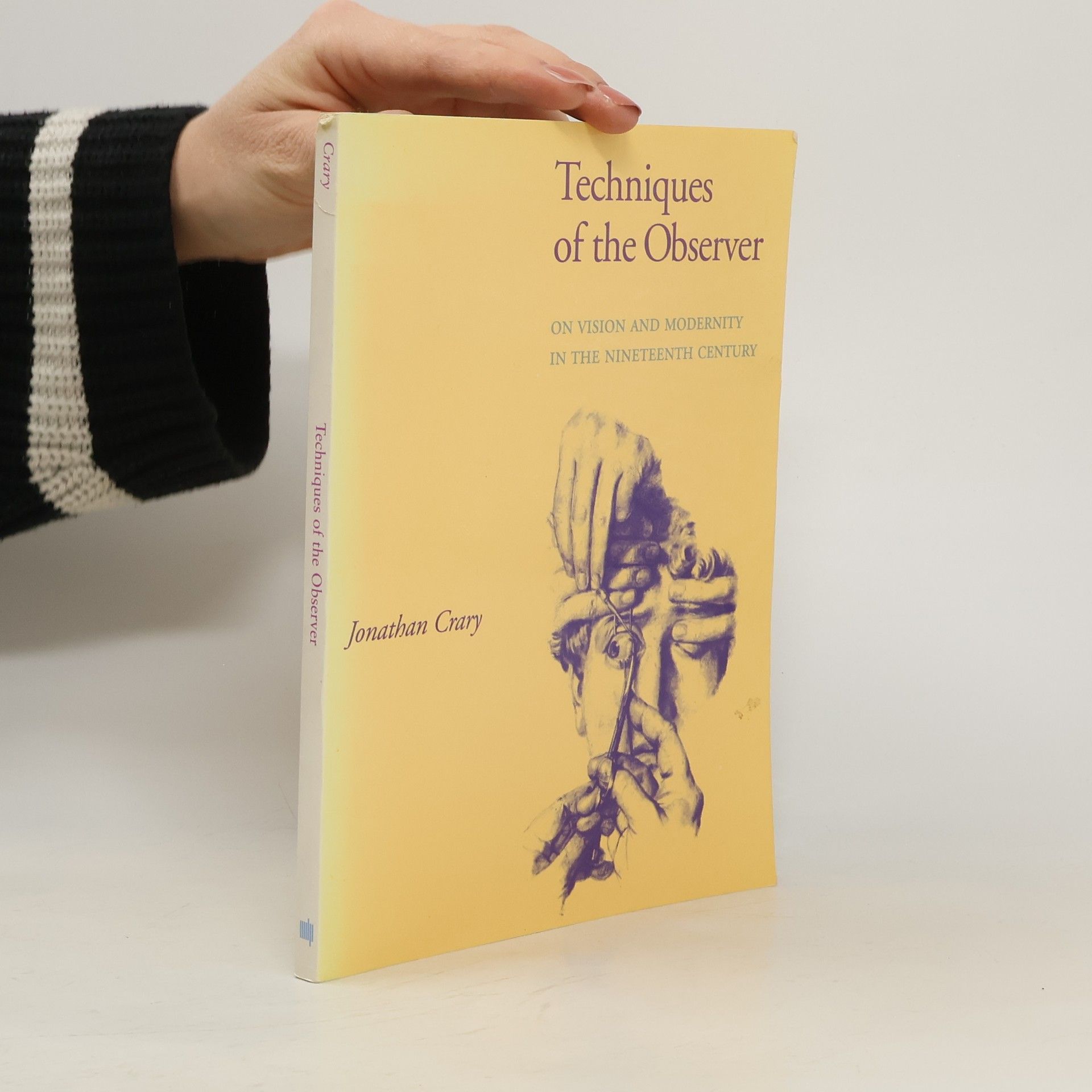Techniky pozorovatele
O vidění a modernitě v 19. století
Jonathan Crary is an art critic and essayist whose work primarily examines the human eye and its role in visual culture. His writing is characterized by observational and scientific approaches, delving into how modern culture shapes perception and attention. Crary's analyses offer profound insights into the intricate relationship between technology and human observation. He explores the mechanisms by which we see and are seen in contemporary society.






O vidění a modernitě v 19. století
Luc Tuymans's recent work explores the complexities of contemporary image-making through stunning translations of digital imagery onto canvas. His muted compositions, once seen as fatalistic, now engage critically with themes of digital fragmentation and deception. This monograph showcases pieces from three exhibitions held since 2020, highlighting a shift in his palette that emphasizes urgency in today's global context. Accompanied by insightful texts from notable writers and historians, it deepens the understanding of Tuymans's influential artistic perspective and the enduring significance of painting.
"This book features essays on modern and contemporary art and media systems"-- Provided by publisher
Die Welt brennt. So weit, so bekannt – aber: Ist eine Kehrtwende noch möglich? Ja, sagt der renommierte Kunstkritiker und Medientheoretiker Jonathan Crary, doch ein Green New Deal wird nicht reichen. Klimaprotest und Kapitalismuskritik müssen sich international vernetzen – außerhalb der digitalen Sphäre. Denn die Digitalisierung verhindert nicht nur echte Solidarität, sondern ist auch für massive und flächendeckende Ressourcenausbeutung verantwortlich. In seinem engagierten Aufruf zeigt der so gefeierte wie kontrovers diskutierte Autor die Alternativen zu Digitalkomplex und Überwachungskapitalismus auf. Er zeichnet den fundamentalen Gegenentwurf eines Ökosozialismus, der eine lebbare Zukunft verspricht und Mensch und Natur vor ihrem Kollaps bewahren könnte.
Refusing the digital world of late capitalism
This anthology includes the vast majority of significant essays on Bridget Riley written since 1999. This was a particularly fruitful period in the reception of her work, as the discourse broadened and her reputation as one of the most important painters of her generation solidified.The essays range from biographical and career overviews to detailed analysis of specific aspects or themes that occur throughout Riley's career. The selection reflects a rich body of work, which sustains the interest of important authors, as evidenced by multiple pieces by �ric de Chassey, Lynne Cooke, Robert Kudielka, Paul Moorhouse and Richard Shiff. Together, this volume of essays tells the story of an artist whose art has continuously evolved over nearly six decades.Most of the critical texts have been written in close consultation with the artist, the result of long conversations, studio visits and archive access. Largely commissioned on the occasion of particular exhibitions, these essays track and trace Riley's focus and influences at different moments in time. Each essay builds upon the next, with more recent authors clearly responding and referencing earlier discourse. The result is a collection of great breadth and cohesion.Featuring essays by 18 authors including Frances Spalding, Michael Bracewell, and Dave Hickey.
“A fascinating short book” on the perils of 21st-century capitalism and its near-complete takeover of our everyday lives (New York Times Magazine) 24/7: Late Capitalism and the Ends of Sleep explores some of the ruinous consequences of the expanding non-stop processes of twenty-first-century capitalism. The marketplace now operates through every hour of the clock, pushing us into constant activity and eroding forms of community and political expression, damaging the fabric of everyday life. Jonathan Crary examines how this interminable non-time blurs any separation between an intensified, ubiquitous consumerism and emerging strategies of control and surveillance. He describes the ongoing management of individual attentiveness and the impairment of perception within the compulsory routines of contemporary technological culture. At the same time, he shows that human sleep, as a restorative withdrawal that is intrinsically incompatible with 24/7 capitalism, points to other more formidable and collective refusals of world-destroying patterns of growth and accumulation.
In den gegenwärtigen Debatten der Kultur-, Medien- und Geschichtswissenschaft spielt die Wahrnehmungstheorie eine entscheidende Rolle: Sie leistet die Verbindung zwischen einer Theorie der Bildmedien und des Betrachters, zwischen einer Untersuchung der physiologischen und psychologischen Voraussetzungen und einer Kulturgeschichte der Wahrnehmung. Jonathan Crarys neues Buch gibt den Diskussionen eine überraschende Wendung, indem es den Begriff der Aufmerksamkeit in den Mittelpunkt rückt. Die Aufmerksamkeit, d. h. die Art und Weise, in der wir etwas bewußt wahrnehmen, ist das Ergebnis von radikalen Veränderungen der Wahrnehmung selbst, deren Wurzeln bis ins 19. Jahrhundert zurückverfolgt werden können. Hier setzt eine »Modernisierung« des Blicks ein, die mit einer Industrialisierung und massenweisen Verbreitung der visuellen Medien Hand in Hand geht. Am Beispiel von drei Malern der Moderne – Manet, Seurat und Cézanne – zeigt Jonathan Crary die entscheidenden und folgenreichen Verschiebungen des Konzeptes und des Bereiches der Wahrnehmung auf. Aufmerksamkeit entwirft eine brillante und materialreiche Archäologie der gegenwärtigen Technologien der Wahrnehmung.
Jonathan Crary's Techniques of the Observer provides a dramatically new perspective on the visual culture of the nineteenth century, reassessing problems of both visual modernism and social modernity. This analysis of the historical formation of the observer is a compelling account of the prehistory of the society of the spectacle.